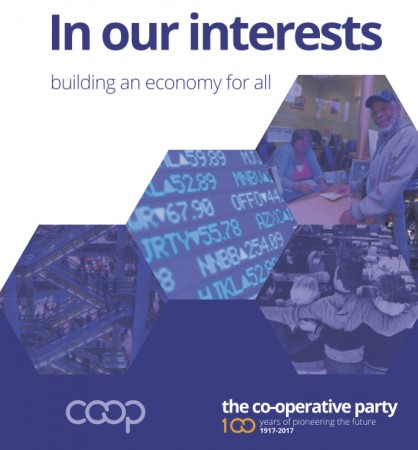As the UK prepares to leave the European Union, the Co-operative Party has published a collection of essays on how to build “an economy for all”.
The pamphlet, In Our Interests: building an economy for all, says co-operative values must be put into the DNA of the economy to promote growth and fairness.
It wants measures to boost the co-op sector, and covers topics such as employee ownership, profit sharing, co-operative development, the gig economy, consumer rights, tax avoidance and corporate governance reform.
Contributors include Labour’s deputy leader Tom Watson, think tank chief Marc Stears, Co-op Group chief executive Richard Pennycook and tax campaigner Richard Murphy.
The Party launched the pamphlet with a conference in London on 28 January – the first event of its centenary year. Participants included Labour/Co-op MPs, business leaders, academics, trade unionists and think tanks.

Party chair, Gareth Thomas MP, said: “The essay collection we have brought together lays bare the inequality, unfairness, missed opportunities and rapid pace of change which typify the British economy in 2017.
“The Co-operative Party is clear that co-operative values can provide the foundations of the new consensus this country so desperately needs. They provide the template for an economy that delivers rewards more fairly; successfully seizes new opportunities and effectively supports our people through the inevitable changes ahead.”
Co-op principles – self-help, self responsibility, democracy, equity, equality, openness, social responsibility and care for others – could provide a roadmap for the future, he added. “We want to see a radical shift in power, a real change in who owns and in whose interests the British economy is run.”
Writing in the publication’s foreword, Party general secretary Claire McCarthy said: “Rebuilding our sense of national unity will require a revolution in who owns and in whose interests the British economy is run.
“The good news is that we don’t have to imagine an alternative – it’s already out there. Hundreds of thousands of co-operatives, with billions of pounds of assets, are showing that there is a better way of doing things. The essays in this collection draw inspiration from that movement to provide a radical vision for the future.”

